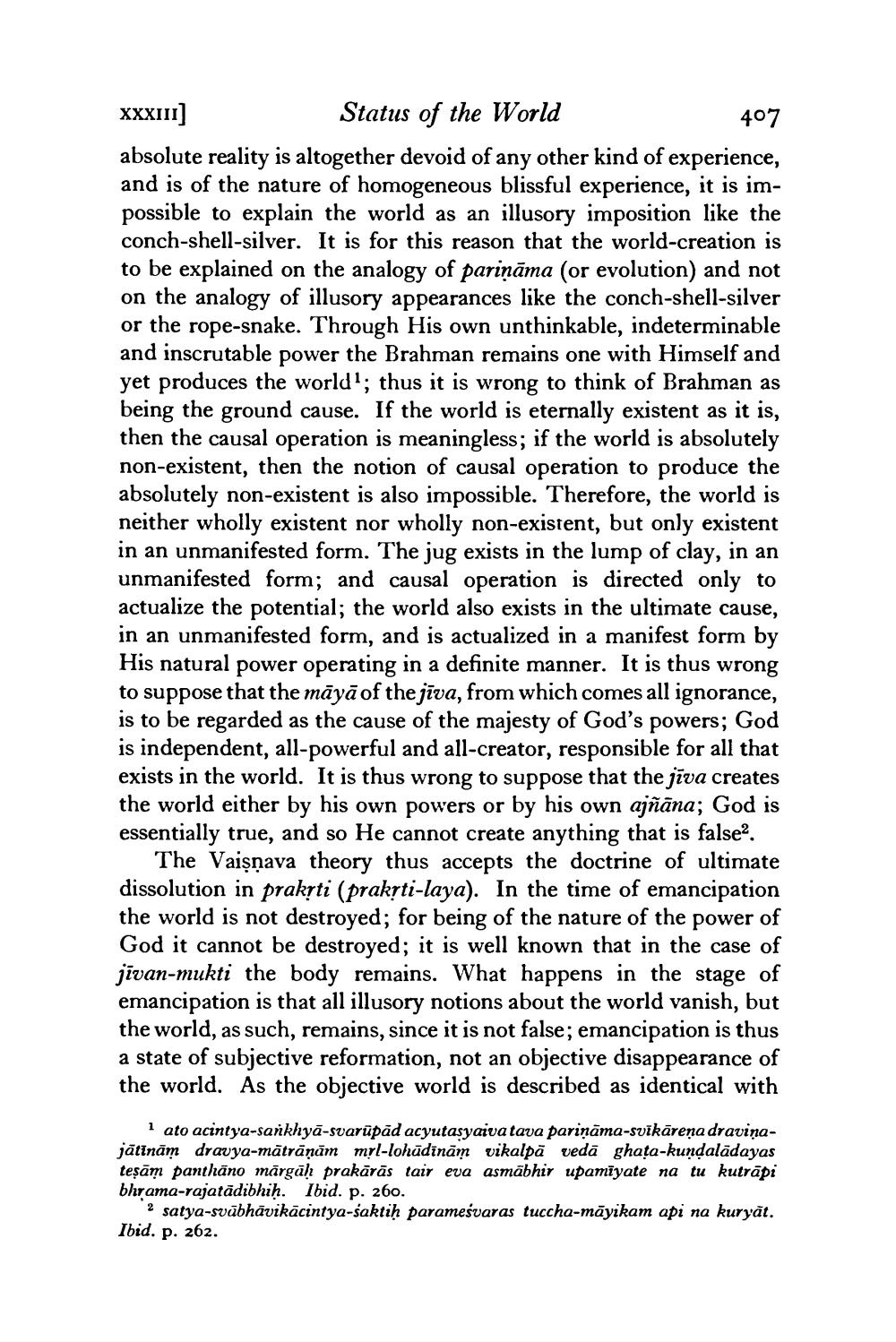________________
XXX11] Status of the World
407 absolute reality is altogether devoid of any other kind of experience, and is of the nature of homogeneous blissful experience, it is impossible to explain the world as an illusory imposition like the conch-shell-silver. It is for this reason that the world-creation is to be explained on the analogy of pariņāma (or evolution) and not on the analogy of illusory appearances like the conch-shell-silver or the rope-snake. Through His own unthinkable, indeterminable and inscrutable power the Brahman remains one with Himself and yet produces the world"; thus it is wrong to think of Brahman as being the ground cause. If the world is eternally existent as it is, then the causal operation is meaningless; if the world is absolutely non-existent, then the notion of causal operation to produce the absolutely non-existent is also impossible. Therefore, the world is neither wholly existent nor wholly non-existent, but only existent in an unmanifested form. The jug exists in the lump of clay, in an unmanifested form; and causal operation is directed only to actualize the potential; the world also exists in the ultimate cause, in an unmanifested form, and is actualized in a manifest form by His natural power operating in a definite manner. It is thus wrong to suppose that the māyā of the jīva, from which comes all ignorance, is to be regarded as the cause of the majesty of God's powers; God is independent, all-powerful and all-creator, responsible for all that exists in the world. It is thus wrong to suppose that the jīva creates the world either by his own powers or by his own ajñāna; God is essentially true, and so He cannot create anything that is false?.
The Vaisnava theory thus accepts the doctrine of ultimate dissolution in praksti (prakrti-laya). In the time of emancipation the world is not destroyed; for being of the nature of the power of God it cannot be destroyed; it is well known that in the case of jīvan-mukti the body remains. What happens in the stage of emancipation is that all illusory notions about the world vanish, but the world, as such, remains, since it is not false; emancipation is thus a state of subjective reformation, not an objective disappearance of the world. As the objective world is described as identical with
1 ato acintya-sankhyā-svarūpăd acyutasyaiva tava pariņāma-svīkāreņa dravinajātinām dravya-mātrāņām myl-lohādinām vikalpā vedā ghata-kundalādayas teşām panthāno mārgāh prakārās tair eva asmäbhir upamīyate na tu kutrāpi bhrama-rajatādibhiḥ. Ibid. p. 260.
2 satya-svābhāvikācintya-saktih parameśvaras tuccha-māyikam api na kuryāt. Ibid. p. 262.




